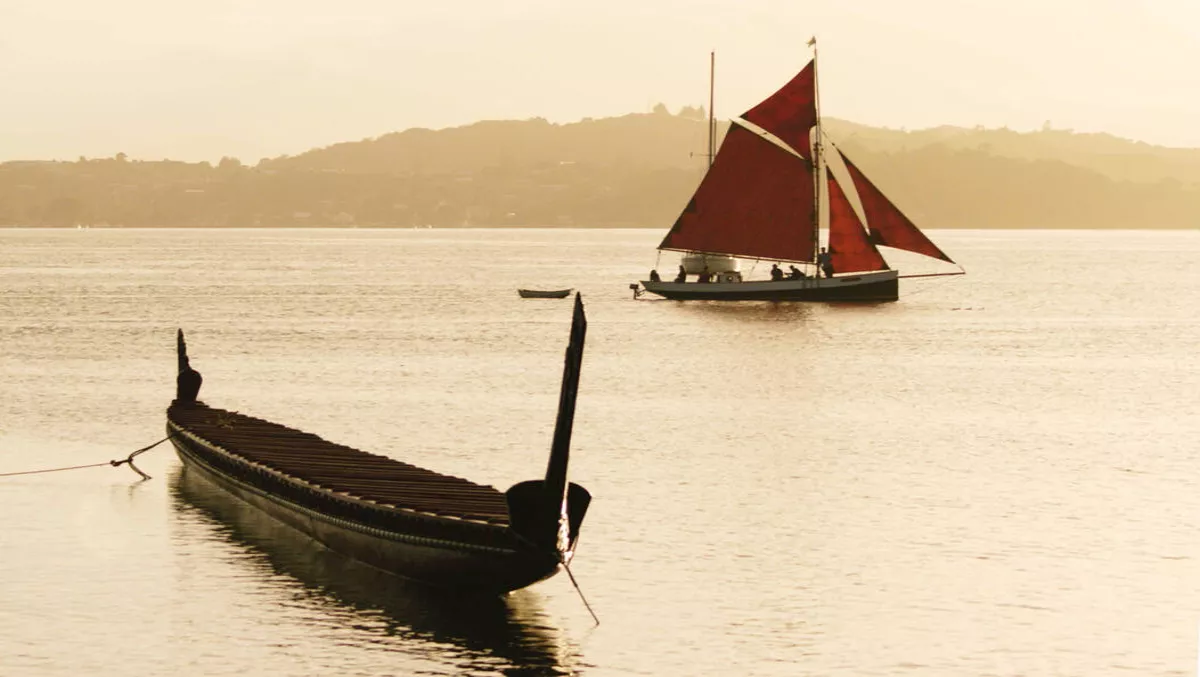
Chinese execs to experience 'wayfinding' approach to Maori business style
A group of Chinese executives are getting a taste of the Māori business style as part of a new course designed to forge connections between both cultures.
The executives will firstly experience a 'wayfinding' trip on a waka before taking the course, run by the University of Auckland Business School.
The "Māori /Chinese Culture Management Course – Wayfinding Leadership" is designed to connect Māori and Chinese businesspeople by taking them through Māori business styles and values, entrepreneurship and the connections between both cultures. The waka trip represents the 'wayfinding' approach to leadership, based on waka navigation principles.
The programme was officially launched yesterday, in conjunction with ATEED and NZ China Business. The University of Auckland Business School's associate professor Chellie Spiller says the course has already attracted interest from several large Chinese companies with New Zealand investments.
Spiller says "We'll be asking, what can Chinese bring for Māori, and what can Māori bring for Chinese? How can we strengthen and learn from each other?"
The Māori economy is worth $42.6 billion, 60% of which is export-focused and growing faster than the wider New Zealand economy.
Spiller believes that there are parallels between Māori and Chinese values, in conjunction with common values such as group wellbeing, relationships, trust-building and a long-term, multigenerational outlook.
In addition, Spiller says there are direct parallels between mana (authority, reputation) and lian and mianzi ("face", society's confidence in business integrity' personal pride, reputation and social status).
There are also parallels between whanaungatanga and iwitanga (kinship, expression and celebration of cultural qualities) and guanxi (trust and cooperation between a network of connections and relations).
Sir Pita Sharples, a speaker at the launch, spoke of how Chinese bankers were originally sceptical of New Zealand after Chinese news media ran headlines about Māori opposition to the Crafar farms sale to Shanghai Pengxin.
This is because of misunderstandings and difference between the Māori preference to lease rather than sell land-based assets.
Sharples said the banker asked, 'Why should we deal with you, you fight Chinese investors in New Zealand?
"We explained for Māori the land, the earth is your mother, the climate, the sky is your father; and we asked the question would you sell your mother? And they understood, and we did business. The most important thing in trade is to show respect to the person you're trading with, and to show it with naturalness and honest affection," Sharples said.
University of Auckland Business School associate professor Manuka Henare explained that Māori have always been focused on enterprising and outward-looking ventures.
"Māori like to grow things, develop things, and then we have a history of moving on to a different part of the world to start again. Māori going global today is Māori doing what we've done always. New Zealand as a market has grown too small for us, so we're looking to fresh fields," Henare says.
Chen Ding says that Māori are important to China because of economic and social development and as a result, has endorsed the course.
The course, developed by Spiller and New Zealand China Business director of consultancy Jolene Zhou, has been five years in the making. The course will run at the Graduate School of Management one night per week for six months.


